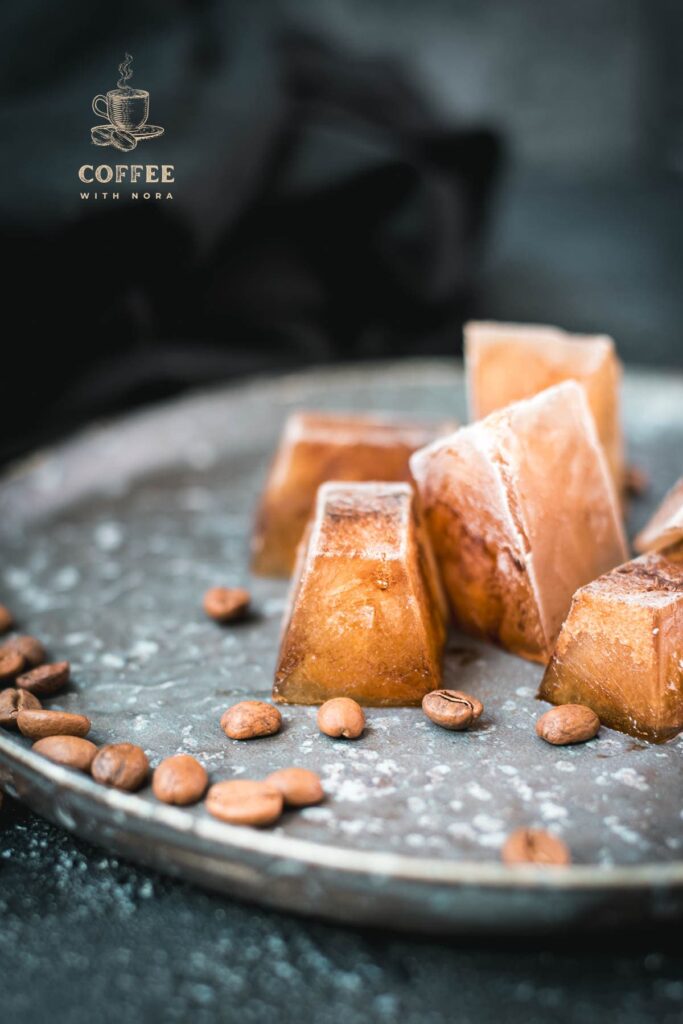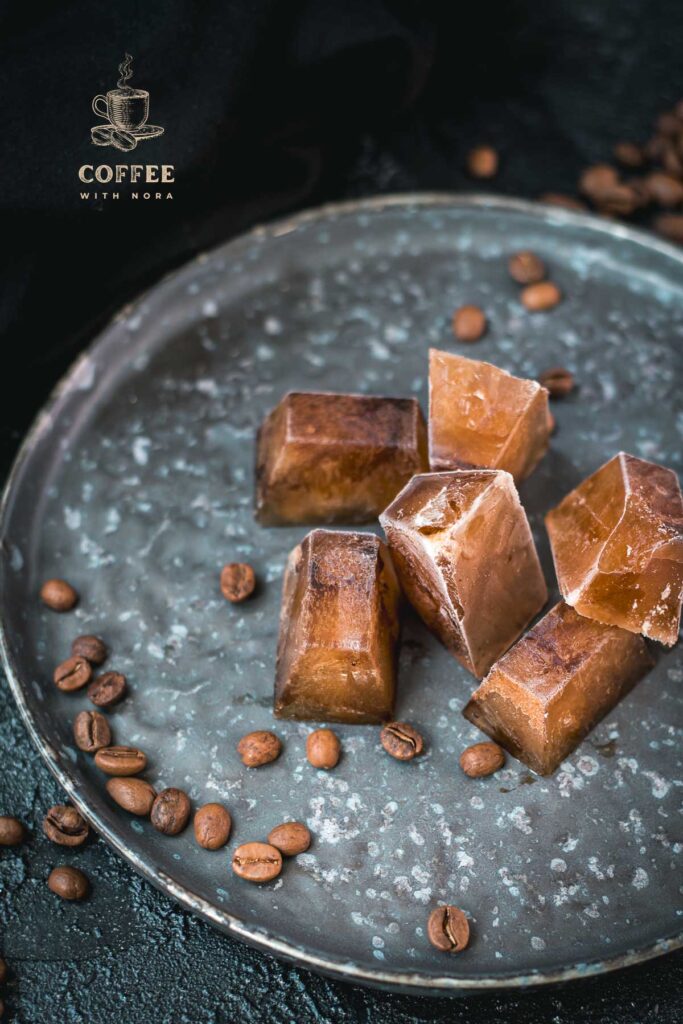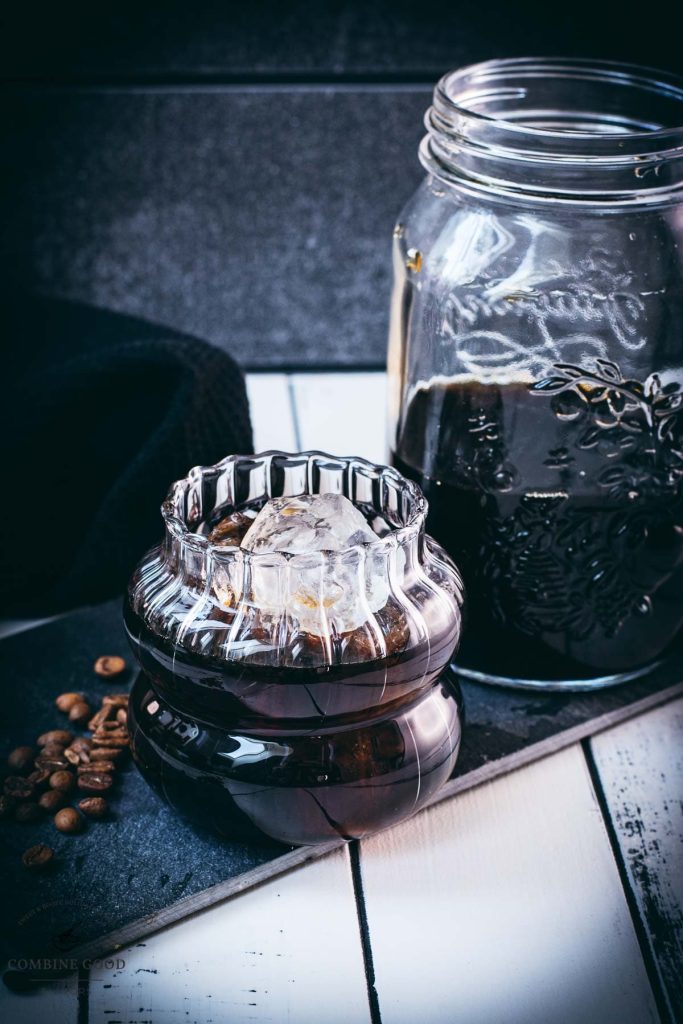Have you ever wondered if you can freeze brewed coffee? Maybe you brewed too much and don’t want to waste it, or perhaps you want to prepare your morning coffee in advance.
Whatever the reason, freezing brewed coffee can be a great option. In this article, we’ll explore the ins and outs of freezing both hot and cold brewed coffee, ensuring you get the best results every time.

Can You Freeze Brewed Coffee?
The simple answer is yes, you can freeze brewed coffee. However, there are some important tips and tricks to keep in mind to maintain its flavor and quality. Freezing coffee can affect its taste, so it’s essential to follow the right steps to ensure it stays as fresh as possible.
Freezing coffee might seem straightforward, but there are nuances that can make or break your experience. When done correctly, frozen coffee can be a lifesaver on busy mornings or during impromptu gatherings. However, neglecting certain steps can lead to disappointing results, such as coffee with a stale or diluted taste.
Why Freeze Brewed Coffee?
There are several reasons why you might want to freeze brewed coffee:
- Avoid Waste: If you brewed too much coffee and don’t want it to go to waste, freezing it can be a great solution. This way, you can save excess coffee rather than pouring it down the drain.
- Convenience: Freezing coffee in advance can save you time in the mornings or when you need a quick caffeine fix. Imagine having a stash of ready-to-drink coffee that only needs to be thawed or reheated.
- Iced Coffee: Frozen coffee cubes can be used to make iced coffee without watering it down. This can enhance your cold coffee experience by keeping it strong and flavorful.
Another reason to freeze brewed coffee is for recipe experimentation. You can use frozen coffee cubes in smoothies, baked goods, or even as a base for coffee-flavored cocktails. The versatility of frozen coffee can extend beyond just a simple drink, offering culinary opportunities you might not have considered.
How to Freeze Brewed Coffee
Freezing brewed coffee is straightforward, but there are a few steps you should follow to ensure the best results:
Step 1: Cool the Coffee
Before freezing, allow the brewed coffee to cool to room temperature. This helps prevent the formation of ice crystals, which can affect the coffee’s texture and taste. Rapid cooling can also help preserve the coffee’s aromatic compounds.
If you freeze hot coffee directly, it can lead to condensation within the storage container, which dilutes the coffee and affects its flavor. Therefore, letting it cool naturally is crucial for maintaining its original taste profile. If you’re in a rush, you can speed up the cooling process by placing the coffee in a shallow dish.
Step 2: Choose Your Storage Method

You have several options for storing your coffee in the freezer:
- Ice Cube Trays: Pour the cooled coffee into ice cube trays. Once frozen, transfer the coffee cubes to a freezer-safe bag or container. This method is perfect for making iced coffee.
- Freezer-Safe Containers: Use airtight containers or jars to store larger quantities of coffee. Make sure to leave some space at the top, as the coffee will expand when it freezes.
- Freezer Bags: Pour the cooled coffee into freezer bags, lay them flat, and freeze. This method is space-efficient and allows you to thaw only the amount you need.
Each storage method has its advantages and disadvantages. Ice cube trays are convenient for smaller portions, while freezer-safe containers are ideal for bulk storage. Freezer bags offer flexibility in terms of space but require careful sealing to prevent leaks and freezer burn.
Step 3: Label and Date
Label your containers or bags with the date you froze the coffee. This helps you keep track of how long it has been in the freezer. Proper labeling ensures that you use the oldest coffee first, maintaining a rotation that keeps your frozen coffee supply fresh.
In addition to the date, you might want to note the type of coffee and any additives, like sugar or milk, if you froze a pre-mixed version. This can help you easily identify what you’re grabbing from the freezer, especially if you have multiple varieties stored.
Thawing and Using Frozen Coffee
Once you’re ready to use your frozen coffee, follow these steps to thaw and enjoy it:
Thawing Coffee Cubes
If you froze your coffee in ice cube trays, you can use the cubes directly in your iced coffee. They will keep your drink cool without diluting it. This method is a fantastic way to enhance your iced coffee experience.
For a more creative twist, you can blend these coffee cubes with milk or a milk alternative to create a rich and creamy coffee slushie. This can be a refreshing treat on a hot day and requires minimal effort to prepare.
Thawing Larger Quantities
For larger quantities of frozen coffee, transfer the container or bag to the refrigerator and allow it to thaw overnight. Once thawed, give the coffee a good stir or shake to ensure it is well-mixed. This helps to redistribute any settled particles and restore its original consistency.
If you’re in a hurry, you can place the container in a bowl of lukewarm water to speed up the thawing process. However, avoid using hot water as it can alter the coffee’s taste and lead to uneven thawing.
Reheating Coffee
If you prefer hot coffee, you can reheat the thawed coffee on the stove or in the microwave. Be sure to heat it gently to avoid altering the taste. A slow and steady reheating process helps maintain the coffee’s original flavor profile.
Using a microwave, heat the coffee in short intervals, stirring between each to ensure even heating. On the stove, use a low flame and stir continuously to prevent the coffee from burning or becoming too hot too quickly.
Can You Freeze Cold Brewed Coffee?
Cold brewed coffee is a popular beverage, especially during the warmer months. The good news is that you can also freeze cold brewed coffee using the same methods mentioned above. Here are a few additional tips specific to cold brew:
Concentrated Cold Brew
Cold brew coffee is often made as a concentrate, which means it is stronger than regular coffee. When freezing cold brew concentrate, you can dilute it with water or milk after thawing to achieve your desired strength. This allows you to customize your drink each time you use it.
You can also freeze the concentrate in smaller portions, like ice cube trays, to make it easier to manage and mix. This method is particularly useful if you enjoy experimenting with different cold brew recipes or ratios.
Flavor Retention
Cold brew coffee tends to retain its flavor better than hot brewed coffee when frozen. This is because the cold brewing process extracts fewer bitter compounds, resulting in a smoother taste. The lower acidity of cold brew makes it more stable and less prone to flavor degradation.
When freezing cold brew, you might notice that its taste remains more consistent over time compared to hot brewed coffee. This makes it an excellent option for those who are particular about maintaining a high-quality coffee flavor.
Coffee Shelf Life: How Long Does Frozen Coffee Last?
When stored properly, frozen coffee can last for up to 3 months. However, for the best taste and quality, it’s recommended to use it within 1 to 2 months. Over time, the coffee may start to lose its flavor and develop a slightly stale taste.
While frozen coffee remains safe to consume beyond the 3-month mark, its quality will diminish. Therefore, keeping track of storage times and using a first-in, first-out system can help ensure you always enjoy the best-tasting coffee.
Tips for Extending Shelf Life
- Airtight Containers: Use airtight containers or bags to prevent freezer burn and maintain the coffee’s freshness. Proper sealing is crucial for protecting the coffee from external odors and moisture.
- Proper Sealing: Ensure the containers or bags are sealed tightly to avoid exposure to air and moisture. Any breach in the seal can lead to freezer burn, which negatively affects the coffee’s taste.
- Consistent Freezer Temperature: Keep your freezer at a consistent temperature to prevent fluctuations that could affect the coffee’s quality. A stable, cold environment helps preserve the coffee’s original flavor and aroma.
In addition to these tips, consider storing your coffee in smaller portions. This way, you only need to thaw what you plan to use, minimizing the time any unused coffee spends in the freezer.
Conclusion
Freezing brewed coffee is a convenient way to save time and reduce waste. Whether you’re freezing hot brewed coffee or cold brew, following these tips and tricks will help you maintain its flavor and quality. Remember to cool the coffee before freezing, choose the right storage method, and label your containers. With proper storage, your frozen coffee can last up to 3 months, giving you a ready supply of coffee whenever you need it.
Now that you know how to freeze brewed coffee, you can enjoy your favorite beverage at any time. Whether you prefer hot coffee, iced coffee, or cold brew, freezing can help you make the most of your coffee and ensure you always have a delicious cup ready to go. By incorporating these practices into your routine, you can enjoy a hassle-free and flavorful coffee experience.







